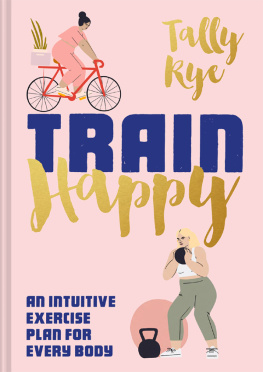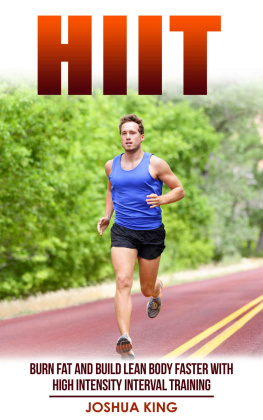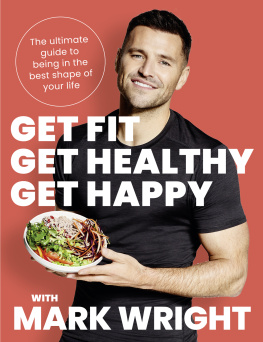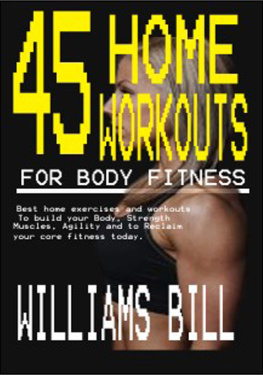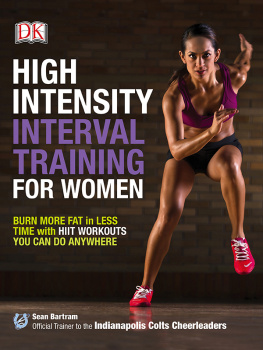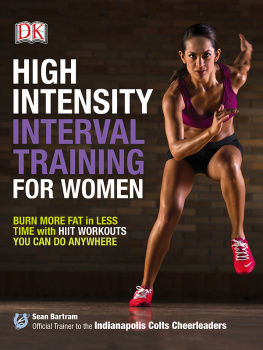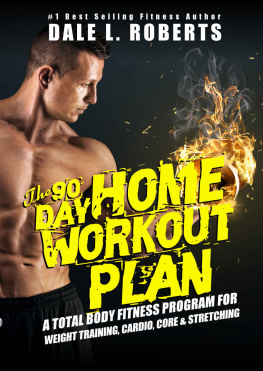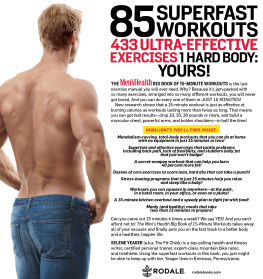Contents
Guide

CONTENTS

WHAT IS THIS BOOK ABOUT?
If exercise had ZERO impact on your weight and appearance, would you still work out? If you answered YES, would you work out any differently from how you do now? Would you do more or less?
In modern society, exercise has become synonymous with weight loss and aesthetics. In fact, I did a poll on social media to ask you guys whether you had initially started exercising for weight loss and aesthetics, or to feel good. Of the 2,314 people who responded, 81% said they initially started to work out as a way to manipulate their appearance. I wasnt surprised, because I too started my exercise journey thinking it was a sure-fire way of getting the body of my dreams. Growing up, I learned that exercise is a thing people do when they want to lose weight, maintain weight loss and counterbalance what they eat. My understanding was that it wasnt enjoyable, but its just what you had to do to get the physique you really wanted.
This way of thinking about exercise and fitness urges us work out to achieve #bodygoals in a way that often seems arduous, painful and difficult, so many are put off because it doesnt seem like a fun way to fill time. And so, because fitness has become so intertwined with the pursuit of the leaner, lighter dream body, the multitude of other benefits that an active lifestyle can bring have kind of been forgotten, or somehow seem less important. But theyre not theyre hugely significant in the context of your physical and mental wellbeing, and so Ive written this book to give them the airtime they deserve and to give you another perspective on what health and fitness are.
When aesthetic results are the primary motivation for working out, this is actually associated with less consistent engagement in physical activity, as well as worsened body image) will give you some clear guidance on how to get going.

MY STORY
Up until the age of 18, I had little to no interest in fitness or nutrition, and I was pretty okay with my body. I didnt do sport, I struggled to run a mile and I ate whatever I liked. Then I started to pursue a career in musical theatre.
I spent the next five years at drama school in full-time training, trying to become the next big thing to grace the West End. With hardly any prior experience in performing, moving every day in front of a mirror in form-fitting outfits came as quite the shock. You can probably guess what the popular topics of conversation among the girls were: how to lose weight, good and bad foods, how to get visible abs and (shocker) boys! The thought process was, if we were slim we would be successful. The sad part about that assumption is that it was likely to be true.
Initially I felt like Id been hit by a truck after the daily dance, stretch and body conditioning classes, but soon I got into the swing of things and actually started to enjoy the physical aspect of my potential career. See the thing was, I was a good singer and an okay actress, but a mediocre dancer. I tried my hardest in dance class, but I knew the one thing I could work on outside of class was my health and fitness. And so, I began to take on the identity of the fit one.
Gradually, I became aware of my body in a new way. I thought I needed to be a size 8 and have a six-pack to even stand a chance of becoming the leading lady Id dreamed of, so I paid closer attention to my diet than ever before.
In my second year, I began to develop gut health issues, which were eventually diagnosed as IBS. After very little guidance from my GP (but thats a whole other story), an online search led me to a wellness bloggers website, who was a leader of the clean-eating crusade back then. She had similar symptoms to mine, and had cut out refined sugars and gluten and ate clean, so naturally I did too. Thus began the next phase of my food and fitness journey: the obsession.
At the same time, I vowed to exercise more outside of my daily dance classes. I graduated from home workout DVDs to a gym membership and discovered weight training for the first time. Crucially, this coincided with upgrading my phone, installing Instagram (my account was then called @cleanfitlifestyle), following #fitspo pages and scrolling through Pinterest for more #bodygoals motivation, workouts and recipes. I had unlocked a whole. New. World. The fitness landscape on social media at the time was largely made up of bodybuilding and bikini competitions, progress pics and LOTS of perfectly presented food. I loved it. No one in my real life cared about what porridge combination I had invented or what I had done at the gym but the internet did! I felt like Id found my tribe and, in some ways I had, because Ive made some lifelong friendships through those social media connections. I discovered macro counting and food tracking apps, I found out what a Bulgarian split squat was and prepped all my meals to eat from Tupperware. My goal was to get fit and healthy, and I understood that to mean dieting and getting lean. So, I spent my summer break working out six days a week, cooking clean recipes and sharing it all online using hashtags like #beastmode #teamnodaysoff and following strangers around the world who were doing the same.
When I went back to college for my final year, I was ripped. I was so lean that when we had to do sit-ups in class it bruised my back. I was cold all the time. Not to mention totally preoccupied with tracking all my food. But did I mention I was lean?! And when I posted photos on Instagram of my perfect food and my six-pack, I felt validated as I got more likes and my follower count grew.
But I couldnt maintain this, it was all-consuming. And so, after a teacher expressed concern about my weight loss and behaviour, I started to think twice about what I was doing. Remember, it all started with me just trying to improve as a performer. I decided I would stop tracking my food and listen to my body instead. But in reality, even though I was no longer using an app, I was still doing the mental maths. Letting go of rules around food and exercise was to be my battle for the next five years. The next phase I call: learning to relinquish control.
Six months after quitting tracking food I met my boyfriend. We started dating, and each time we met up it would challenge me to get out of my comfort zone a little more whether it was eating ice cream out the tub for dessert, going out for drinks or doing something fun and missing a workout. It was uncomfortable at first but, ultimately, I enjoyed having more fun and being social.
After drama school, I decided I would become a personal trainer as being a part-time performer and a part-time PT seemed to complement each other. (Ironically, I actually never auditioned for anything, my heart wasnt in it like it was for fitness.) Moving back home with my family to get my qualification, I suddenly had a lot less control over my own food and exercise. As I became more sedentary, I started to see changes to my body and it was hard not to freak out. I felt like I was losing a part of my identity, and going into the fitness industry I worried that my body needed to be perfect to succeed. But I was between a rock and a hard place because I didnt want to go back to tracking and intense training. I distinctly remember feeling like a failure when, during PT training, I realized that my own weight and body fat percentage had gone up.

